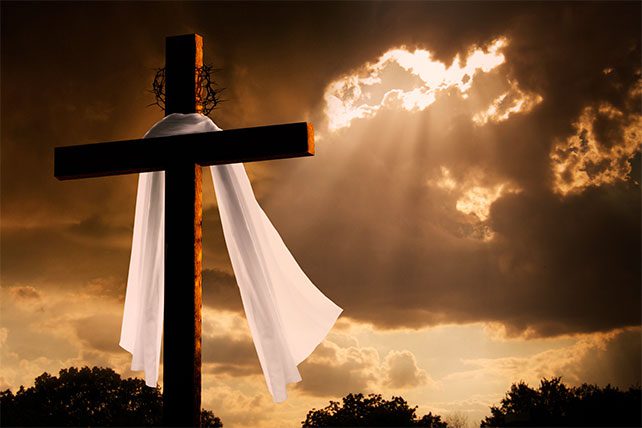Holy Week is an incredibly important week on the Christian calendar. It’s the week when we celebrate the most central events and truths of our faith. Soon we will celebrate the last week of Jesus’ earthly ministry: his entrance into Jerusalem, the last supper, his betrayal, death, and resurrection. Your church may have a Good Friday service, where we remember Jesus’ death on the cross. I once heard someone jokingly ask, “Why do we call it Good Friday? It doesn’t seem like it was a very good day for Jesus.” And that seems like a good point. The day Jesus was crucified was a rough day (understatement of the century, I know).
RELATED: A Good Friday Playlist From John Mark McMillan
Because of the heaviness of the day, we can have the tendency to treat a Good Friday service as though it were Jesus’ funeral. But I think that misses something of the goodness of Good Friday. There is a deep and rich goodness that I think God wants us to celebrate.
Here are four reasons why a Good Friday service shouldn’t be a funeral service for Jesus.
1. Jesus’ Death Was a Victory of Obedience.
We’re cut to the heart when we read of Jesus’ words from the cross: “My God, my God, why have you forsaken me?”
As we hear Jesus’ words of pain, we get a glimpse into the suffering that he experienced as he hung on the cross for you and me. This is not something that we should ever brush past or take lightly.
But what was happening in that moment?
Was Jesus God Forsaken?
It’s a great tragedy that we have not properly understood Jesus’ words in their context. Many theologians have tried to imagine this moment. And they have explained that Jesus was completely separated from the Heavenly Father.
According to these theologians, in this moment, the connection that had existed between the Heavenly Father and the Son from eternity past was completely severed. So when Jesus asks why God has forsaken him, it is because he feels the weight of eternal separation from divinity in that moment on the cross.
But what if we’re misreading that moment of a Good Friday Service? What if Jesus is saying something different?
A Psalm of Victory
When Jesus cried out to God, he was actually quoting a psalm from the Old Testament. Psalm 22, which was written by King David, begins with the very same words: “My God, my God, why have you forsaken me?” The song is a lament. It’s a song that cries out to God in pain.
And as Jesus hung on the cross, he saw this psalm playing out before his eyes. The song speaks about his enemies mocking him, wagging their fingers at him, gloating over him, and encompassing him. Jesus could relate as he looked around at the religious leaders who mocked him from the foot of the cross.
But the song that Jesus was quoting didn’t end on a down note. The song acknowledges the deep pain and inner turmoil that is brought about by betrayal and injustice. But then the song takes a turn. The singer remembers that God is still good. His promises are still true. There is still hope.

